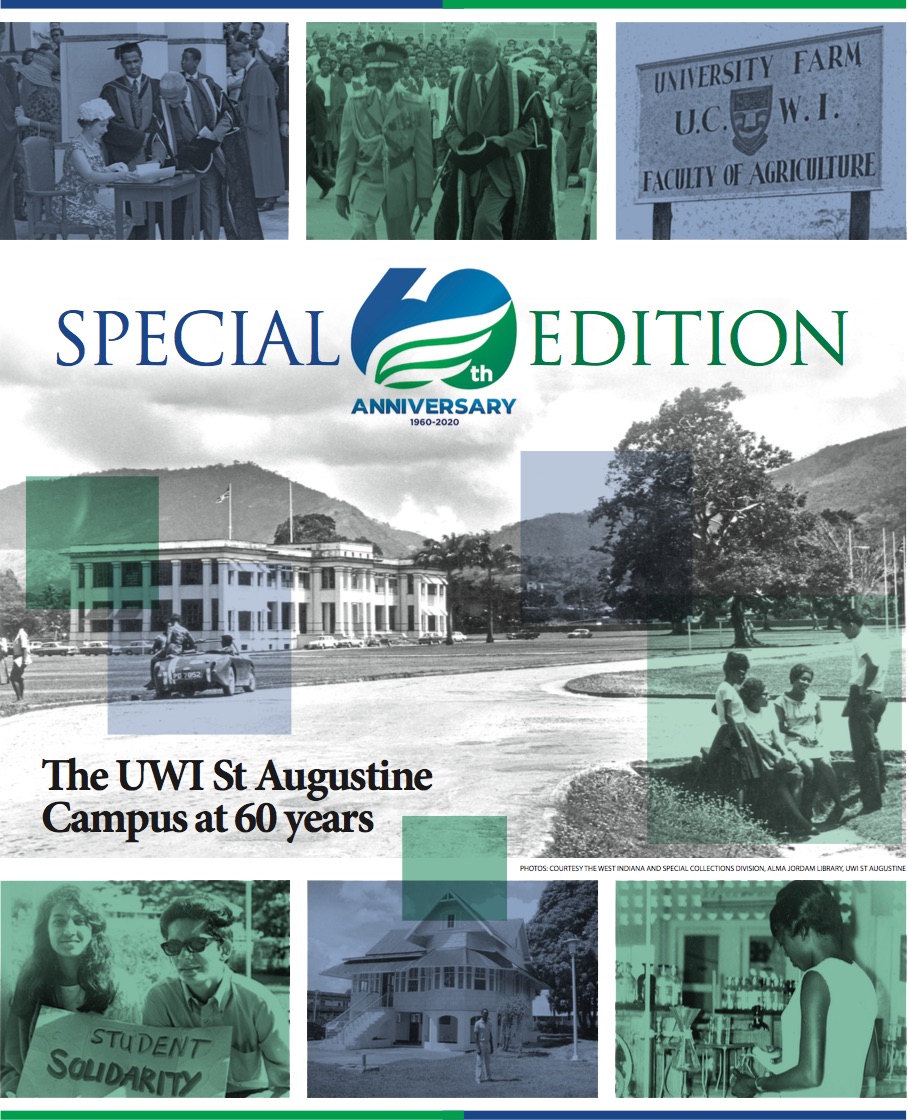
ILLUSTRATION: MAYA RAMESAR
As editor of UWI Today it's been my pleasure over the last two years to share the stories of the St Augustine Campus. It's an odd contradiction that even though the university is well-known many people have no idea about the amazing work of the people who make up the UWI community. It's even more fulfilling to share work that has the potential to improve society and help us solve our most persistent problems. At its core this is what UWI St Augustine is - an asset, a resource for making all our lives better.
Now is a good time to ponder the purpose and meaning of the St Augustine Campus as we celebrate its 60th anniversary. In going through the old records for this special commemorative issue of UWI Today, I was most impressed by the clarity of the campus' founders. They knew exactly what they wanted from this institution. They knew how it would fit in the larger plan of national and regional development post-Independence.
“Ours is a university community in the process of rapid growth, stretching our slender resources to what we think are desirable ends - provision of more trained people as quickly as possible,” wrote Dr Dudley Huggins, UWI St Augustine Campus Principal and Pro Vice-Chancellor in the 1966 issue of the Pelican Annual.
In the same issue, grandmaster of West Indies' cricket Sir Frank Worrell, writing in his capacity as Dean of Students, said: “it is the university's task to get its students to think in terms of making a contribution not only to the university itself, but to the people of their respective countries, and indeed, the people of the West Indies.”
They wanted to prepare our people for self- determination and modernisation, and instil in them a sense of Caribbean identity and commitment to our collective advancement. As the second campus, with an initial focus on agriculture and engineering, UWI St Augustine was very important to these objectives.
It wasn't easy. I think many of us familiar with the sprawling, well-populated St Augustine Campus of today would be surprised at how small and under-resourced the enterprise was in its beginning. In its first year (1960 to 1961) the campus had 67 students, in its second 96, in its third 583, and in its fourth 800. Today we have as many as 18,000. Many people, past and present, gave a supernatural effort in the generational endeavour that led to this expansion.
In the 1965 issue of the Pelican Annual, Dr Huggins, pointing to the quest for expansion and its perils, said, “St Augustine has rapidly become a centre of increasing university interests and activities... This expansion has brought strains... The basic cause of our problems is that we took in more students than our present resources justify.”
However, and most importantly, he adds that “the driving force has been our conviction of the need for an increase in the number of our people with skills.”
In this issue we also celebrate the 50th anniversary of the establishment of the Alma Jordan Library (AJL), one of the region's greatest stores of knowledge. Most of the imagery you see in these pages come from the AJL's West Indiana and Special Collections Division, of which the staff provided UWI Today with incredible support in finding and preparing the photographs for our use.
We also looked at a legacy in the making. UWI Global Giving, a philanthropic initiative conceived by Vice-Chancellor Professor Sir Hilary Beckles, has evolved from a campaign to meet the university's research and scholarship needs to a mechanism for supporting students during the COVID-19 pandemic. We spoke with Ms Minna Israel - a powerhouse in Jamaican banking, philanthropist and campaign chair of UWI Global Giving - on the initiative and its great success in 2020.
In this issue as well we had the chance to speak to three former campus principals - Professor Emeritus Compton Bourne, Dr Bhoe Tewarie and Professor Clement Sankat. This was especially enlightening as each of them had their own challenges to face, just as the principals before them. Whether it be the lack of resources, economic recession, competition from other institutions, unrest, or outdated campus cultures and practices, there have always been times of crises.
We are at such a moment again. One of the greatest in our history. But in the story of UWI St Augustine's founding and rise, despite the challenges, we can be inspired to continue moving forward. Maybe the next great expansion won't be in student population or campus construction. Perhaps it may be a spectacular redefinition of purpose. We look forward to sharing the stories.
Until then, happy anniversary UWI St Augustine. May the future bring much growth and happiness to the campus community.
JOEL HENRY
Ag. Editor, UWI Today